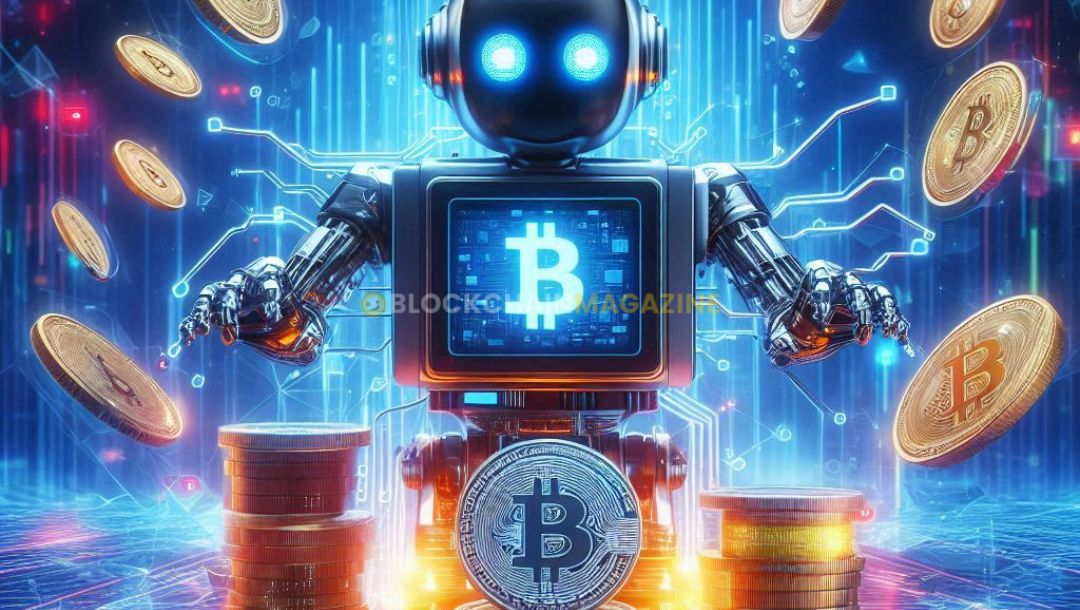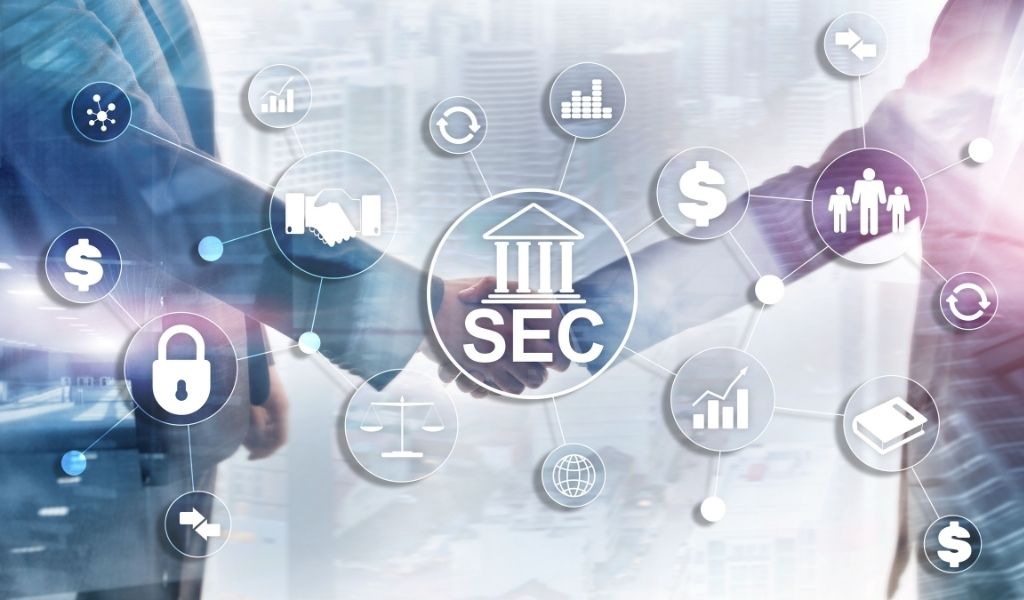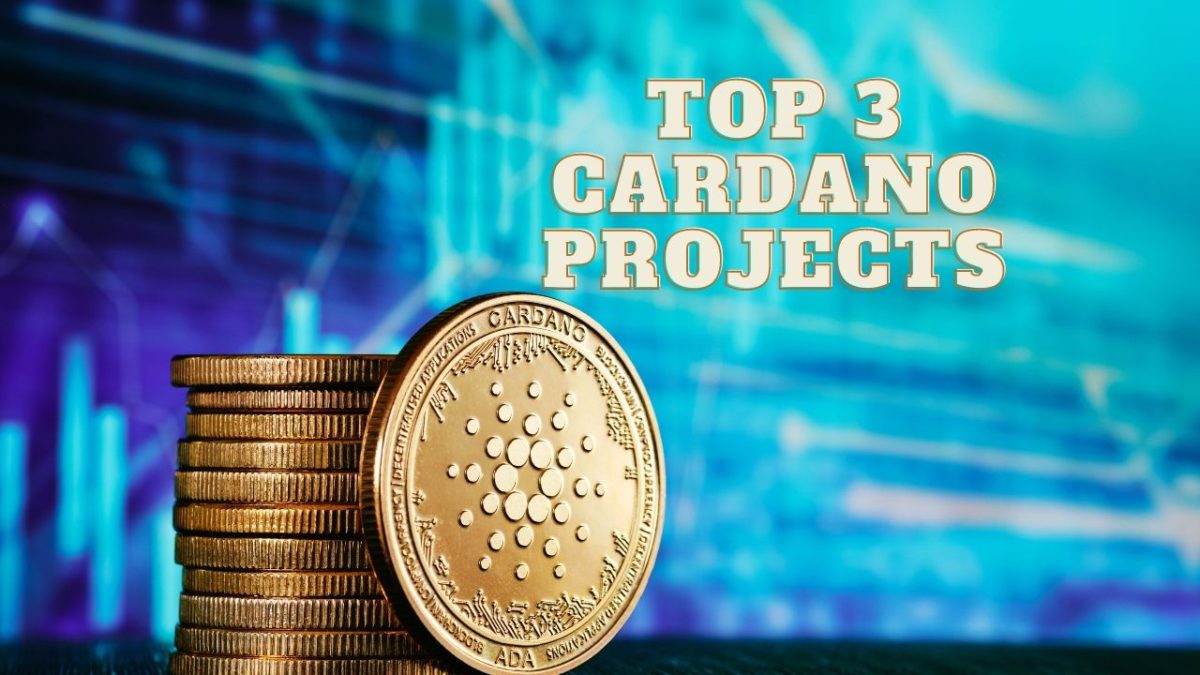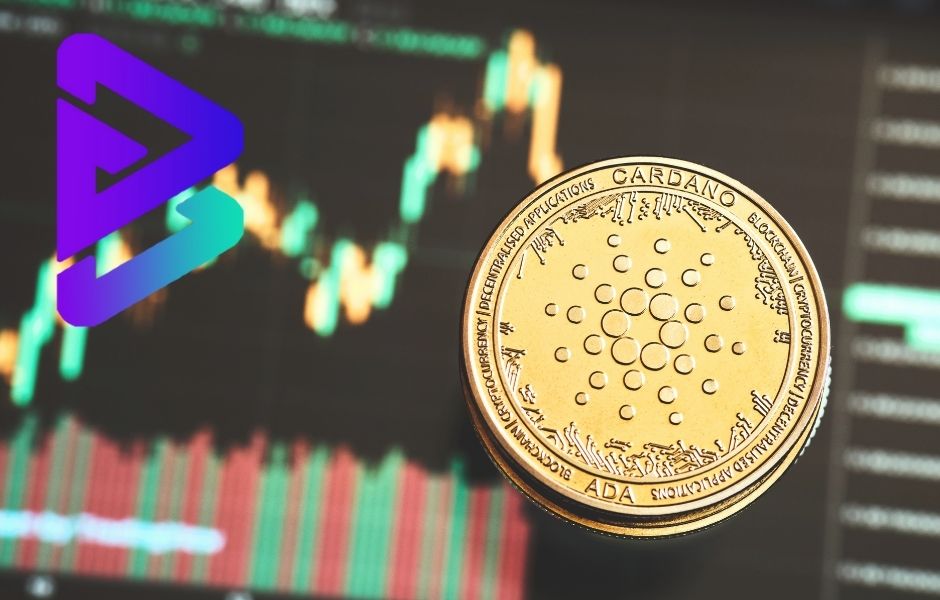Top Best DeFi Technologies Innovating in Web 3 Universe
In the exciting world of Web 3.0, decentralized finance (DeFi) technologies are changing how we think about money and transactions. These innovations are not just about cryptocurrency; they are about creating a new financial system that is open, fair, and accessible to everyone. From smart contracts to decentralized marketplaces, let’s explore the top DeFi technologies that are shaping the future of finance in this new digital universe.
Key Takeaways
- Smart contracts automate agreements, making transactions faster and cheaper.
- DeFi platforms allow people to lend and borrow money without banks.
- NFTs give ownership of unique digital items, changing how we view art and collectibles.
- DAOs enable communities to make decisions together, promoting collaboration.
- Decentralized marketplaces connect buyers and sellers directly, reducing costs and increasing trust.
1. Smart Contracts
Smart contracts are a key part of the Web 3.0 world. They are like digital agreements that automatically carry out the terms without needing a middleman. This means they can help save money and time. Here are some important points about smart contracts:
- Self-Executing: They automatically enforce rules and agreements.
- Trustworthy: They use blockchain technology, which makes them secure and transparent.
- Cost-Effective: By removing intermediaries, they lower transaction costs.
Benefits of Smart Contracts
| Benefit | Description |
|---|---|
| Efficiency | They speed up processes by automating tasks. |
| Transparency | All actions are recorded on the blockchain. |
| Security | They are protected against tampering and fraud. |
Smart contracts can change how we work and interact, especially in areas like remote employment. They ensure fair agreements and transparency in the job market.
In conclusion, smart contracts are transforming many industries, making them more efficient and fair. As we move forward, understanding their potential will be crucial for anyone involved in the digital economy.
2. Decentralized Finance (DeFi)
Decentralized Finance, or DeFi, is changing how we think about money and banking. Unlike traditional finance, which relies on banks and other institutions, DeFi allows people to transact directly with each other. This means that transactions can be faster and cheaper because there are fewer middlemen involved.
Key Features of DeFi
- Lower Costs: Without banks taking fees, users save money.
- Global Access: Anyone with an internet connection can use DeFi services.
- Innovative Products: New financial tools are being created all the time.
Risks of DeFi
While DeFi offers many benefits, it also comes with risks:
- Scams: The lack of regulation can attract dishonest actors.
- Complexity: Many DeFi platforms are hard to use for beginners.
- Smart Contract Bugs: Errors in code can lead to loss of funds.
DeFi is like a new frontier in finance, offering exciting opportunities but also requiring caution.
The Future of DeFi
As more people learn about DeFi, its popularity is expected to grow. Currently, there are over $100 billion in funds locked in DeFi protocols, showing that many are interested in this new way of handling money. The future looks bright, but users should always be careful and do their research before diving in.
3. Non-Fungible Tokens (NFTs)
Non-Fungible Tokens, or NFTs, are unique digital assets that represent ownership of a specific item or piece of content on the blockchain. Unlike cryptocurrencies such as Bitcoin or Ethereum, which are interchangeable, NFTs are one-of-a-kind and cannot be exchanged on a one-to-one basis. This uniqueness has made NFTs popular in various fields, especially in art, gaming, and collectibles.
Key Features of NFTs
- Uniqueness: Each NFT has distinct information or attributes that make it different from any other NFT.
- Ownership: NFTs provide proof of ownership, allowing creators to sell their work directly to consumers without intermediaries.
- Programmability: NFTs can be programmed with smart contracts, enabling features like royalties for creators on secondary sales.
Applications of NFTs
- Art: Artists can tokenize their work, ensuring authenticity and enabling direct sales to buyers.
- Gaming: In-game items can be represented as NFTs, allowing players to buy, sell, or trade them as real assets.
- Collectibles: Digital collectibles, such as trading cards or virtual pets, can be bought and sold as NFTs, creating a new market for collectors.
NFTs are reshaping how we think about ownership and value in the digital world. They empower creators and provide new ways for fans to engage with their favorite content.
In summary, NFTs are a groundbreaking technology that is changing the landscape of digital ownership and creativity. As the market continues to grow, their impact on various industries will likely expand, making them a key player in the Web 3.0 universe. Decentralized finance is also closely linked to NFTs, as it allows for innovative financial models around these unique assets.
4. Decentralized Autonomous Organizations (DAOs)
Decentralized Autonomous Organizations, or DAOs, are a new way for people to work together without needing a central leader. These organizations are run by smart contracts on a blockchain, which means decisions are made automatically based on rules set by the members. This allows for fair and transparent governance.
Key Features of DAOs
- Member Governance: All members have a say in decisions, making it a democratic process.
- Transparency: Every action taken by the DAO is recorded on the blockchain, ensuring accountability.
- Global Participation: Anyone from anywhere can join and contribute, breaking down geographical barriers.
DAOs represent a shift towards community-driven initiatives, where members collaborate to achieve common goals without traditional hierarchies.
Benefits of DAOs
- Reduced Costs: By eliminating intermediaries, DAOs can operate more efficiently and at lower costs.
- Increased Trust: The use of blockchain technology fosters trust among members, as all transactions are visible and verifiable.
- Flexibility: DAOs can adapt quickly to changes, allowing for innovative solutions to emerge.
In summary, DAOs are revolutionizing how organizations function by promoting decentralized decision-making and empowering individuals to take part in governance. They are a key part of the Web 3.0 landscape, paving the way for a more inclusive and collaborative future.
5. Decentralized Identity Management
Decentralized identity management is a game-changer in the digital world. It allows people to have greater control over their personal information. Instead of relying on centralized systems, individuals can manage their identities using blockchain technology. This means that users can verify their identity without exposing all their personal data.
Key Features of Decentralized Identity Management
- User Control: Individuals own their data and can choose what to share.
- Enhanced Privacy: Personal information is kept secure and private.
- Interoperability: Different platforms can work together seamlessly.
Benefits of Using Decentralized Identity Systems
- Data Ownership: Users regain control over their data, unlike traditional systems where companies own it.
- Security: Blockchain technology makes it hard for hackers to access personal information.
- Censorship Resistance: No single entity can censor or control access to your identity.
Decentralized identity systems, driven by blockchain and zero-knowledge proofs, promise enhanced privacy and user control over personal information.
In summary, decentralized identity management is crucial for empowering individuals in the digital age. It not only protects personal data but also fosters trust and security in online interactions.
6. Supply Chain Transparency
Supply chain transparency is becoming increasingly important in today’s world. Blockchain technology plays a crucial role in this area by providing a clear view of the journey of products. By using a decentralized ledger, all parties involved can track the movement and origin of goods, ensuring authenticity and accountability.
Key Benefits of Supply Chain Transparency:
- Traceability: Every step of a product’s journey is recorded, making it easy to trace back to its source.
- Accountability: Stakeholders can be held responsible for their part in the supply chain, promoting ethical practices.
- Consumer Trust: When customers know where their products come from, they are more likely to trust the brands they buy from.
How Blockchain Ensures Transparency:
- Immutable Records: Once data is entered into the blockchain, it cannot be changed, ensuring that all information is accurate.
- Real-Time Tracking: Stakeholders can access up-to-date information about the status of products at any time.
- Decentralization: No single entity controls the data, which reduces the risk of fraud and manipulation.
In a world where consumers demand more information about their purchases, supply chain transparency through blockchain is not just a trend; it’s a necessity.
By leveraging blockchain’s decentralized ledger, businesses can ensure transparency and traceability across the entire supply chain network. This innovation is reshaping how products are tracked and verified, ultimately benefiting both companies and consumers alike.
7. Decentralized Social Networks
Decentralized social networks are changing how we connect online. These platforms focus on user privacy and give people control over their own data. Unlike traditional social media, which often collects and controls user information, decentralized networks use blockchain technology to allow direct interactions between users. This means that users can share and communicate without relying on a central authority.
Key Features of Decentralized Social Networks
- Data Ownership: Users own their data and can decide who can access it.
- Censorship Resistance: These networks are less likely to censor content, allowing for free expression.
- Enhanced Security: Data is stored on a decentralized network, making it harder for hackers to access.
Benefits of Using Decentralized Social Networks
- User Control: Individuals have more power over their online presence.
- Privacy: Personal information is better protected from unauthorized access.
- Community Engagement: Users can connect with like-minded individuals without interference.
“Decentralized social networks empower users to reclaim their digital identities and foster genuine connections.”
In summary, decentralized social networks represent a significant shift in how we interact online, prioritizing user rights and security over centralized control. As these platforms grow, they may redefine our online experiences and relationships.
8. Decentralized File Storage
Decentralized file storage is a game-changer in how we manage and share data. This technology allows users to store files securely without relying on a single central server. Instead, files are distributed across a network of computers, making them more resilient to failures and attacks.
Key Features of Decentralized File Storage
- Data Integrity: Files are stored in a way that ensures they cannot be altered without detection.
- Censorship Resistance: No single entity can control or remove the data, protecting user freedom.
- Cost Efficiency: Users can save money by utilizing unused storage space from other users.
Benefits of Using Decentralized File Storage
- Enhanced Security: Data is encrypted and spread across multiple locations, making it harder for hackers to access.
- User Control: Individuals have full ownership of their data, unlike traditional systems where companies hold the keys.
- Reliability: With data stored in multiple places, the risk of losing important files is significantly reduced.
Decentralized file storage represents a shift towards a more open and user-centric internet, where individuals regain control over their digital assets.
In summary, decentralized file storage is not just about saving space; it’s about creating a safer, more equitable digital environment for everyone. As we move forward, technologies like these will play a crucial role in shaping the future of the web.
9. Decentralized Marketplaces
Decentralized marketplaces are changing how we buy and sell goods online. These platforms allow users to trade directly with each other without needing a middleman. This means lower fees and faster transactions. Here are some key features of decentralized marketplaces:
- Direct Transactions: Buyers and sellers can connect directly, making the process quicker.
- Lower Costs: Without intermediaries, transaction fees are reduced.
- Global Reach: Anyone can participate, regardless of location.
| Feature | Description |
|---|---|
| Trustless Transactions | Smart contracts ensure that both parties fulfill their obligations before payment is released. |
| Privacy | Users maintain control over their personal data. |
| Security | Blockchain technology protects against fraud and hacking. |
Decentralized marketplaces represent a significant shift in how commerce is conducted, promoting transparency and efficiency.
In summary, decentralized marketplaces are a vital part of the Web3 ecosystem, offering innovative solutions that empower users and enhance the trading experience. They are set to revolutionize the way we think about buying and selling in the digital age, especially as the page discusses the transformative impact of blockchain technology on various sectors.
10. Decentralized Computing
Decentralized computing is a game-changer in the Web 3 universe. It allows users to run applications and perform tasks across a network of computers instead of relying on a single server. This technology enhances efficiency and reduces costs.
Key Features of Decentralized Computing:
- Scalability: It can easily grow to handle more users and tasks.
- Reliability: If one part of the network fails, others can keep working.
- Cost-Effectiveness: Users can save money by sharing resources instead of using expensive servers.
Benefits of Decentralized Computing:
- User Control: Individuals have more power over their data and applications.
- Security: Data is less vulnerable to attacks since it’s spread out across many locations.
- Flexibility: Developers can create applications that work in various environments without being tied to one provider.
Decentralized computing represents a shift towards a more user-centric internet, where individuals can harness the power of distributed networks to achieve their goals without relying on centralized authorities.
In summary, decentralized computing is a vital part of the Web 3 landscape, offering innovative solutions that prioritize user empowerment and efficiency. As this technology continues to evolve, it will play a crucial role in shaping the future of digital interactions.
Conclusion
To sum it up, the rise of Web3 technology is a big step in changing how we use the Internet. It brings a new way of doing things that focuses on sharing power, working together, and giving users more control. With tools like blockchain, smart contracts, and decentralized networks, Web3 opens up many new possibilities in different fields. This change is not just about finance or digital art; it’s about changing how we think about ownership and privacy. As we move forward, it’s important to keep an eye on the challenges we might face, like making sure everything works smoothly and is easy to use. By working together and being open to new ideas, we can make the most of what Web3 has to offer and create a better online world for everyone.
Also, read – What has happened to Argo Blockchain? Intriguing issues affecting Argo Blockchain In 2024
Frequently Asked Questions
What are smart contracts and how do they work?
Smart contracts are like digital agreements that automatically do what they say when certain conditions are met. They run on a technology called blockchain, which makes them safe and trustworthy.
What is Decentralized Finance (DeFi)?
Decentralized Finance, or DeFi, is a system that allows people to use financial services like lending and borrowing without needing banks or other middlemen.
How do Non-Fungible Tokens (NFTs) work?
NFTs are unique digital items that you can own and trade. Each NFT is different, kind of like how no two baseball cards are the same.
What are Decentralized Autonomous Organizations (DAOs)?
DAOs are groups that run on smart contracts. They allow members to make decisions together without a central leader, making it fairer for everyone.
How does decentralized identity management protect my personal information?
Decentralized identity management lets you control your own data. You can decide who sees your information, which helps keep your identity safe.
What are decentralized marketplaces?
Decentralized marketplaces are online places where you can buy and sell directly with others without needing a middleman, like a traditional store.
Stay informed with daily updates from Blockchain Magazine on Google News. Click here to follow us and mark as favorite: [Blockchain Magazine on Google News].
Get Blockchain Insights In Inbox
Stay ahead of the curve with expert analysis and market updates.
latest from tech
Disclaimer: Any post shared by a third-party agency are sponsored and Blockchain Magazine has no views on any such posts. The views and opinions expressed in this post are those of the clients and do not necessarily reflect the official policy or position of Blockchain Magazine. The information provided in this post is for informational purposes only and should not be considered as financial, investment, or professional advice. Blockchain Magazine does not endorse or promote any specific products, services, or companies mentioned in this posts. Readers are encouraged to conduct their own research and consult with a qualified professional before making any financial decisions. The featured image used is just a creative depiction of the title and it does not intend to hurt sentiments of any person or institution. If it hurts anyone sentiments, please do not hesitate to reach out to Blockchain Magazine.

 Bitcoin
Bitcoin  Ethereum
Ethereum  XRP
XRP  Tether
Tether  Solana
Solana  USDC
USDC  Dogecoin
Dogecoin  Cardano
Cardano  Lido Staked Ether
Lido Staked Ether  TRON
TRON  Wrapped Bitcoin
Wrapped Bitcoin  Chainlink
Chainlink  Wrapped stETH
Wrapped stETH  Avalanche
Avalanche  Sui
Sui  Stellar
Stellar  Litecoin
Litecoin  Toncoin
Toncoin  Shiba Inu
Shiba Inu  LEO Token
LEO Token  Hedera
Hedera  USDS
USDS  Hyperliquid
Hyperliquid  Polkadot
Polkadot  WETH
WETH  MANTRA
MANTRA  Bitcoin Cash
Bitcoin Cash  Bitget Token
Bitget Token  Ethena USDe
Ethena USDe  Wrapped eETH
Wrapped eETH  Uniswap
Uniswap  Monero
Monero  NEAR Protocol
NEAR Protocol  WhiteBIT Coin
WhiteBIT Coin  Pepe
Pepe  Aave
Aave  Ondo
Ondo  Bittensor
Bittensor  Aptos
Aptos  Internet Computer
Internet Computer  Dai
Dai  Official Trump
Official Trump  Mantle
Mantle  Ethereum Classic
Ethereum Classic  Tokenize Xchange
Tokenize Xchange  OKB
OKB  Gate
Gate  Sonic (prev. FTM)
Sonic (prev. FTM)  sUSDS
sUSDS 




